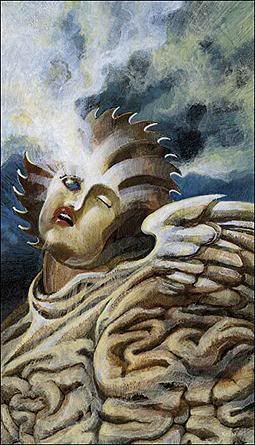Day 25
An out-of-town visitor was staying with me for 2 weeks, he provided me with more than enough live entertainment. We'll see what happens next.
An out-of-town visitor was staying with me for 2 weeks, he provided me with more than enough live entertainment. We'll see what happens next.
Excerpts of an artlcile by one of Rolling Stone magazine's best writers from his days at eXile.ru:
The Day the TV Died
by Matt TaibbiRussia suffers through a blackout - but just imagine a TV-free America
In Russia, the week-long TV blackout that followed the Ostankino transmission tower fire was an annoyance, but hardly the catastrophe the incident would represent in the US. Russians are tougher, more dulled to disaster than their American counterparts, who have never suffered a war on their own territory and often live to the age of 40 without ever peeling a potato. Russians, as a whole, are in much better psychological health than Americans, who in many cases are just a few hours of enforced boredom away from extreme psychotic episodes.
In Russia, surprisingly large numbers of people have lives outside of their jobs. Many have parents who live nearby, friends who are welcome to visit unannounced, and acquaintances with whom they will share a bottle of vodka for no particular reason. Furthermore -- and this is something that most Americans would find revolutionary -- there are even a great many Russians who have living grandparents that they visit voluntarily.
It's true, some young Americans do marry. But few young people know how to cook these days, so most couples go to restaurants more or less every night. Home is place for sleeping and for watching TV. On the rare occasion that a guest is over, it's because you want to watch something on television together.
Television. It has come to be thought of by Americans as their great reward for adherence to the social contract. Work is the one acceptable vice in America; people are encouraged to be greedy. TV is the only acceptable escape. In other countries people raise children. Americans no longer raise children, because they take too much time away from work. Babies cry while you are trying to iron a shirt for a meeting. They make you come home at 8:30, while the guy in the next office, who has no children, is ready to stay until 9:00. Worst of all, babies may ruin the Swedish furniture you worked so hard to buy.
So TV is it. People come home from work, sit down, and watch 50 or 60 channels' worth, sometimes nine or ten hours at a time. It's an infinitely varied other-world that couldn't be more different than the narrow, tiring, undignified high-pressure life you actually lead. And for many in the US, television is no longer enough. That's why, at least once a week, some American goes into his office and shoots a few people before killing himself, shouting things like, "Was it worth it? Was it worth it?" In Nikolai Gogol's famous story, Akaky Akakiyevich died when he lost his overcoat; in America, they kill when they lose their patience.
No TV in America. It would make the Ostankino disaster seem like a minor car accident. On the first day, people would stop going to work. By the second day, they'd be openly carrying guns. There would be riots, theft, arson, gang warfare, revolution. You would walk down the street and see people hurling themselves out the window, or hear everywhere the sounds of stools being kicked out from under soon-to-be-hanging bodies . . .
Russians have real-life problems to worry about -- they handle these things much better. In America, real life hasn't' been observed by scientists since sometime around 1947. Forced to face it, our people wouldn't handle it well. Unfortunately, we'll never see it happen. You see, our firemen and safety engineers particularly around our TV towers, they work long hours, too.
Oneirophrenia
From the Greek words "oneiros" (dream) and "phrenos" (mind).
A hallucinatory, dream-like, state caused by several conditions such as prolonged sleep and/or sensory deprivation. It has some of the characteristics of simple schizophrenia, such as a confusional state and clouding of consciousness, but without presenting the dissociation symptoms which are typical of this disorder.
Persons affected by oneirophrenia have a feeling of dream-like unreality which in its extreme form may progress to delusions and hallucinations. Therefore, it is considered a schizophrenia-like acute form of psychosis which remiss in about 60% of cases within a period of two years. It is estimated that 50% or more of schizophrenic patients present oneirophrenia at least once...
Viktor Koen's idea of Oneirophrenia

I'm thinking about doing some backsliding. Sopranos is on every Sunday night and I usually go over to some friends' house to watch it. This can be considered social watching, not brain-numbing-while-alone watching. Sounds suspicious, I know.
